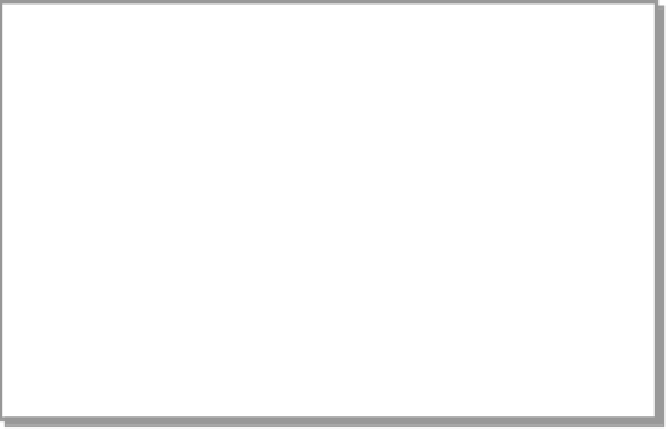Environmental Engineering Reference
In-Depth Information
orientation. Glass's (1997) electronic journal article about school choice pro-
videsanearlyillustration.Shelinksherinterviewsdirectlytohertableofcon-
tents (Figures 6.1 and 6.2).
Some colleagues and publishers are concerned about copyright issues.
Norms continue to develop in this area, however, and publishing conventions
have been successfully applied to this medium (Burbules & Bruce, 1995). I
have published articles on the Internet, and one of my topics,
Empowerment
Evaluation: Knowledge and Tools for Self-Assessment and Accountability
(Fetterman, Kaftarian, & Wandersman, 1996), was distributed both in tradi-
tional print format and over the Internet. I have not experienced any abuse of
privilege in this area. I have, however, experienced a rapid and exponentially
expanded distribution of ideas.
Scholarly topics are more difficult to write than articles—a result, in part,
of their greater length and in part of the larger scope of intellectual effort that
is required. Stamina and concentration are essential: An article requires
tremendous effort to reduce mountains of data and pools of analysis into con-
cise expression. A topic requires the same effort multiplied many times. In
addition, a topic is the ultimate scholarly format and will be judged by gener-
ation after generation of readers.
Table of Contents
• The Problem
• Review of Literature
• Methods of the Study
• The School in the Study
• Findings
• Summary & Conclusions
• References
• The Interviews
About the Author
Sandra Rubin Glass
Sandy.glass@asu.edu
Sandra Rubin Glass is a Faculty Associate in the College of Education at
Arizona State University where she received her
Figure 6.1
Electronic journal—article
SOURCE: Reproduced with permission from S. Glass and G. Glass.

